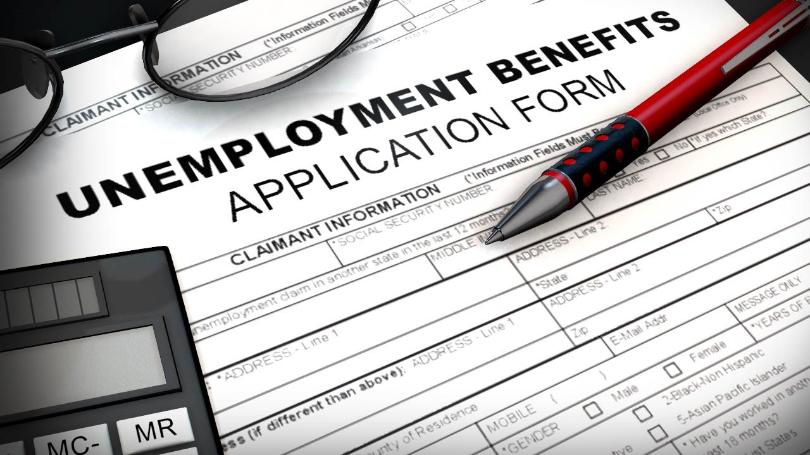Students face financial strains amid COVID-19 pandemic

The coronavirus (COVID-19) pandemic isn’t just posing risks to people’s health — it’s affecting people’s livelihoods as they lose their jobs and income, including USF students who will have the burden of paying rent this week.
Many students have been laid off from their jobs for an unspecified amount of time as safety measures continue to grow to slow the spread of the COVID-19 outbreak.
Restaurants are popular places for students to work part time and full time. It was difficult news to take in when Gov. Ron Desantis ordered restaurants to operate only for delivery and takeout on March 20. As a result, a significant amount of businesses have been forced to downsize.
“I work at the uptown district Chick-fil-A on Fowler,” first-year student Joel Shaju said. “We’re still open, but only do drive-thru so it’s new work that I’m not completely used to and sometimes, feels like I’m being pulled in 10 directions at once. And for the first time, I have no shifts the coming week so I’m not going to get paid for the week at all.”
The downsizing has forced some students to seek out other means of employment to supplement their income.
“Before the virus, I worked 40 hours a week, six days a week,” first-year student Kayla Moyano said. “Now I only work one day a week at a restaurant in south Tampa. I had to get a second job because of this.”
For some students, there is less luck in even finding secondary employment.
“I’m a bartender and my restaurant is closed until further notice,” junior Alexandra Bosselman said. “They weren’t able to do anything for me so I’m trying to find a job, and with no luck.”
For others, their remaining options are to file for unemployment. This comes as 3.3 million Americans have filed for unemployment benefits because of business closures associated with COVID-19, according to the U.S. Department of Labor.
“I was a server and my job closed down, potentially for months,” junior Allison Noon said. “They didn’t do anything for us besides send the link to sign up for unemployment.”
The maximum value of an unemployment check in Florida is $275 per week, according to The Tampa Bay Times. However, the value of unemployment benefits that are distributed to each person is dependent on their earnings and duration of employment, which could affect the eligibility of USF students.
Even then, $275 is about a fraction of the rent some students pay, since some off-campus housing can be $1,000 or more per month, according to USF’s Off-Campus Housing website. Some students said they have loans, other bills and groceries to pay for as well.
“Without a source of income, I am dependent on my parent for my living expenses and stuff,” first-year student Arwin Nandu said.
Other students said they are solely or more heavily reliant on their own income to afford living expenses.
In an email on Wednesday, USF President Steven Currall asked off-campus housing managers to show patience with collecting payments and other living expenses that are within their jurisdiction.
“We recognize that while USF does not have authority to direct students to vacate their private residences, many are electing to do so out of an abundance of caution, based on the guidance of university and government officials,” Currall wrote in an email to off-campus housing managers.
“This is why we are respectfully asking apartment and housing managers in the USF area to consider granting early lease terminations and flexibility with rent payment plans, security deposits and guarantees on a case-by-case basis.”
USF administration is also encouraging students to utilize local resources that are available to assist them if they are struggling.
“The [Feed-A-Bull Food Pantry] is still providing food, Student Outreach Services can help connect students to local social services and our Counseling Center will continue to provide mental health support,” said Dean of Students Danielle McDonald in an email to The Oracle.
USF Administration is also working on the possibility of finding work opportunities for students and staff whose work cannot be done remotely, according to university spokesperson Adam Freeman
This is coming as many campus facilities aren’t operating due to campus closure, and several student employees have had similar experiences as students with off-campus jobs.
“I work at the USF Tampa Bookstore and got an email a few days ago saying I was laid off,” first-year student Jelena Milosavljević said. “I don’t qualify for unemployment insurance either.”
The USF Library also had to downsize.
“Currently I’ve been laid off,” Nandu said. “The boss has told me that he’ll reappoint when the library reopens, which he doesn’t even know when they will.”
As of March 27, approximately 55 percent of Student Success student employees have been working remotely, according to the Office of Student Success.
Some of the departments within Student Success include Center for Leadership and Civic Engagement, Center for Student Involvement, Office of Multicultural Affairs, Student Government, Career Services, Student Health Services and Recreation and Wellness.
“I have an on-campus job [as an FWS student] and luckily we were given the option to get our biweekly pay stub based on our average hours and continue to work remotely,” first-year student Ruth Perez said.
The ability for students to maintain income is crucial as legalities will bar some from receiving the expected $1,200 stimulus package payment from the U.S. government.
If students are claimed as dependents by their parents, they will not be able to collect the $1,200 payment, regardless of if they qualify as an adult by being 18 years of age or older.
If students are seeking financial help, they can apply for USF’s United Support Fund. According to the Office of Student Success, “employment changes would be a factor in considering eligibility.”
“It’s upsetting,” Shaju said. “But I can’t complain because [based on what other students are saying], there are people who have it a lot worse than me.”







